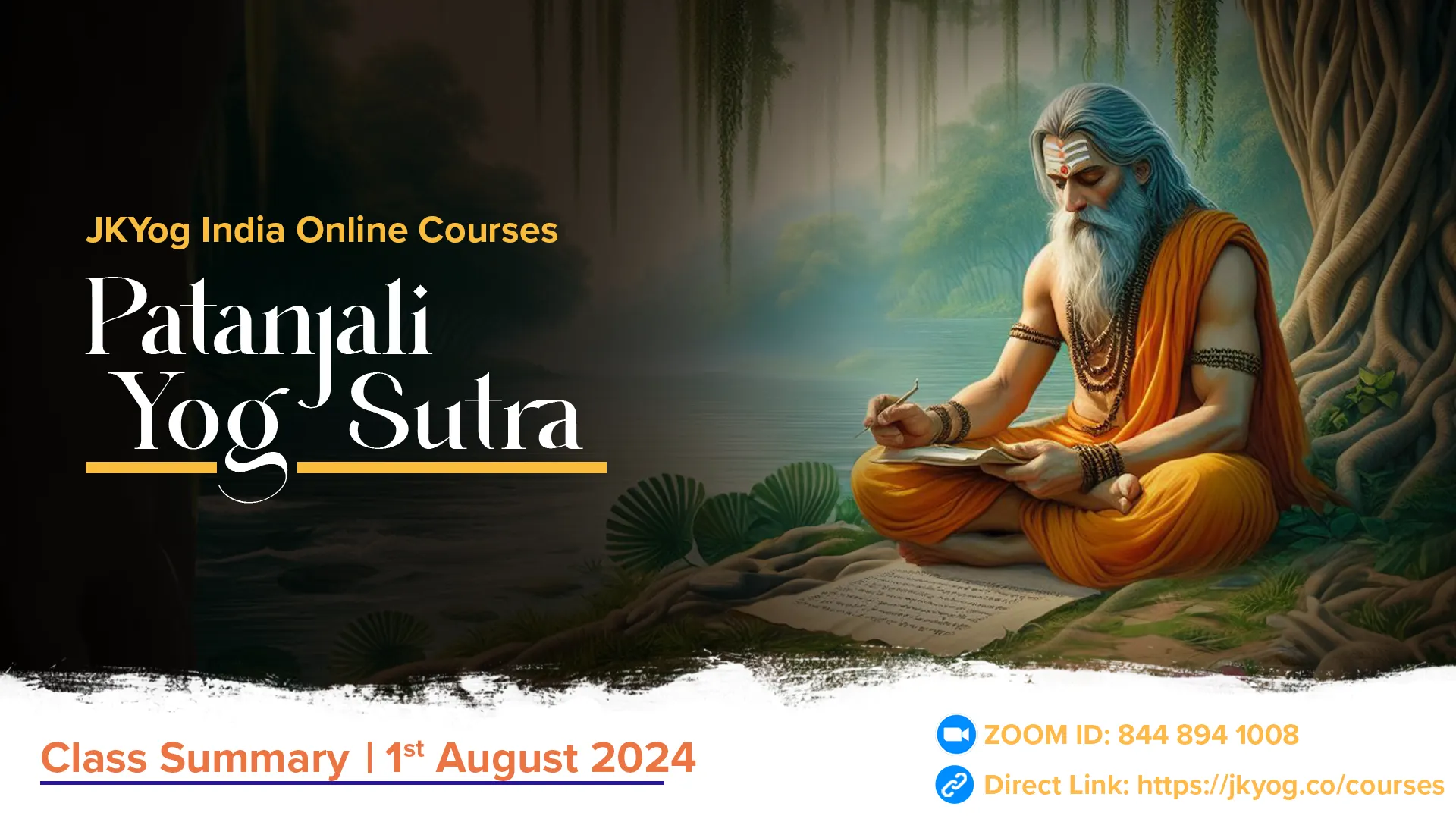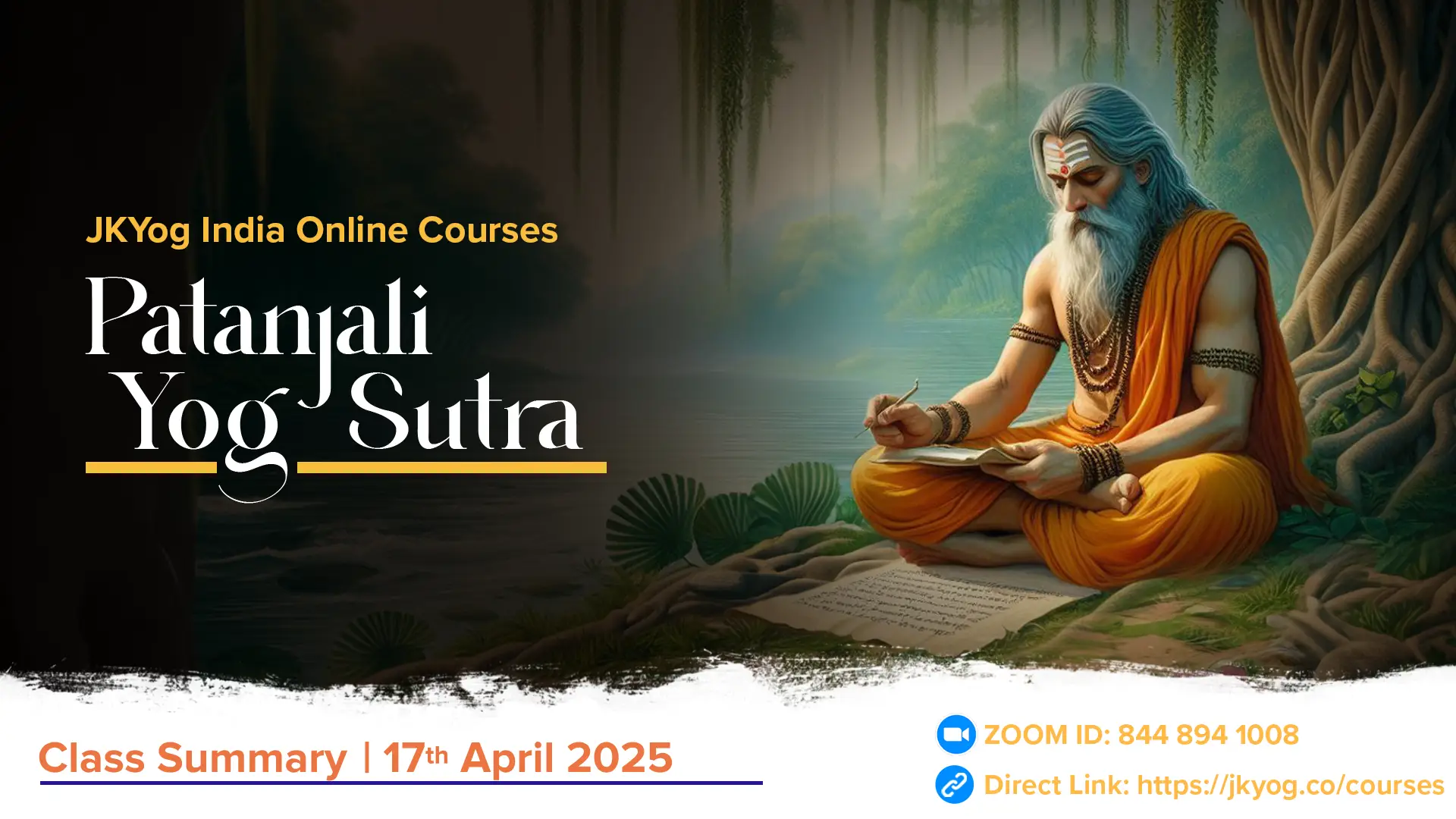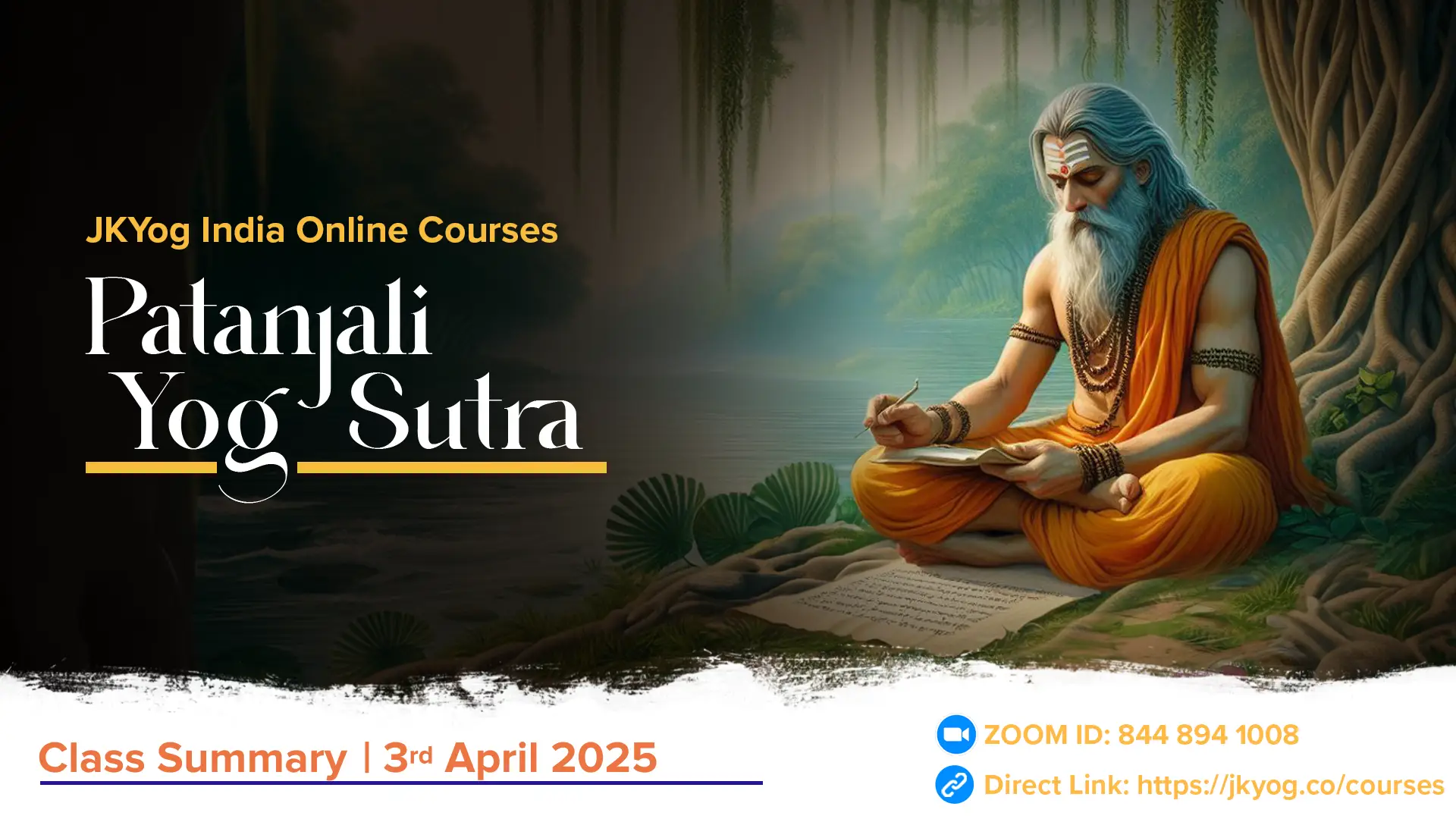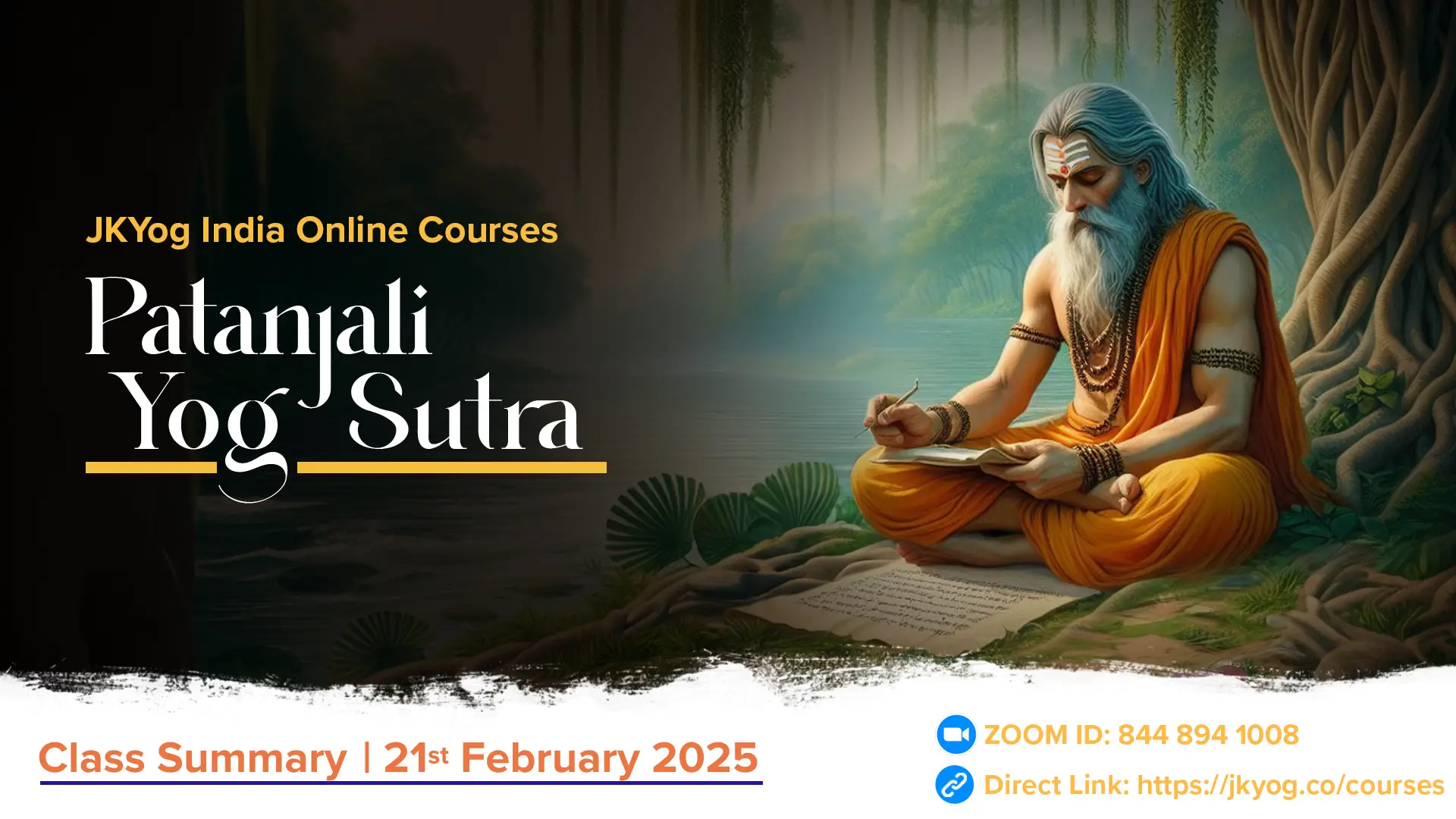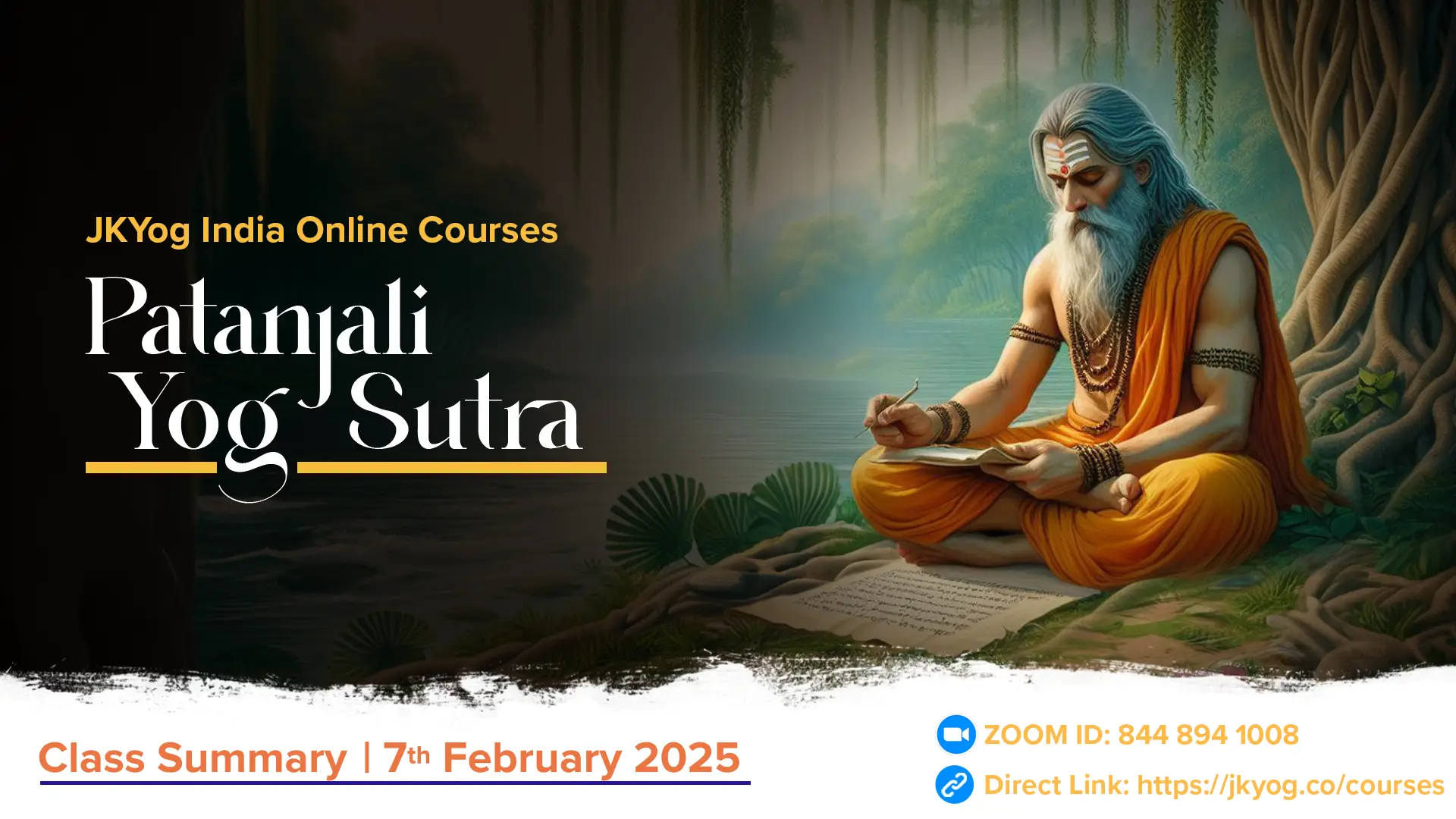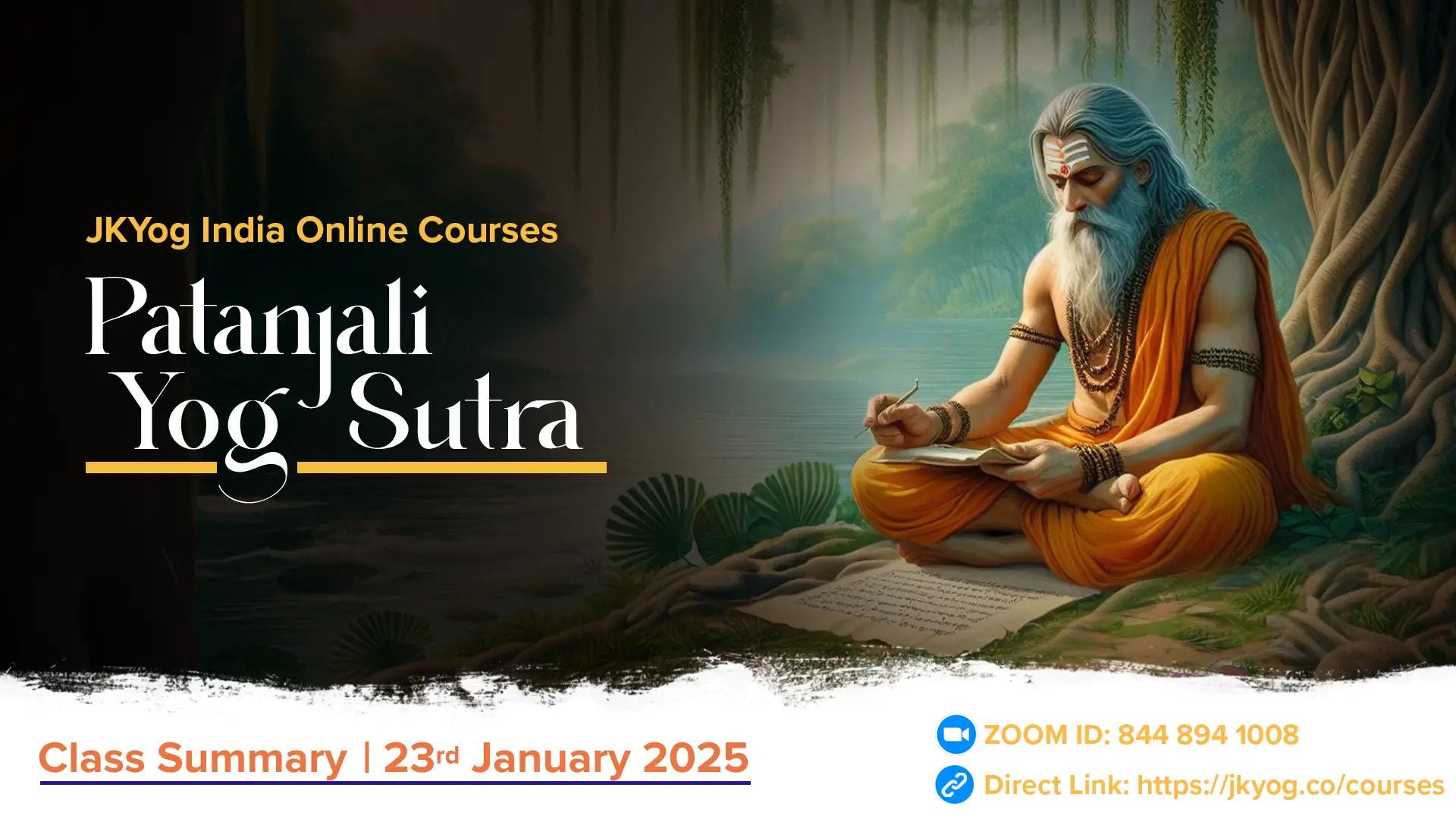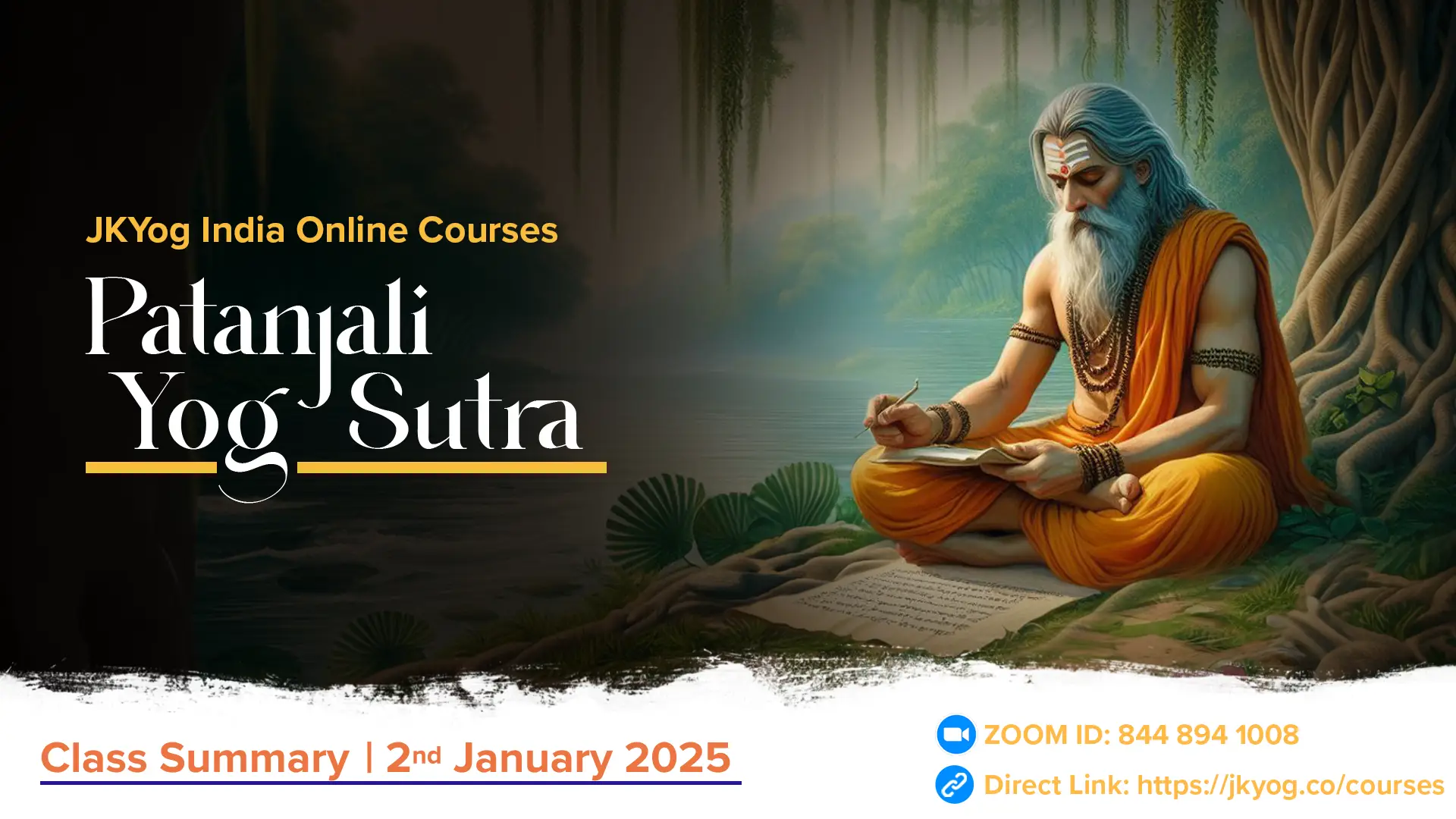स्वाध्यायादिष्टदेवतासम्प्रयोगः
svādhyāyād iṣṭadevatā samprayogaḥ || 2.44 ||
Translation: By studying scriptures, one gets connected to one’s favourite deity.
What is the advantage of studying the scriptures?
The benefit of studying the scriptures lies in eventual communion with God. Why has the sage introduced the term Ishtadevta instead of his favourite term, Ishvara? We know that there are two types of religions. Some are monotheistic, that is, they believe in just one God. Some are polytheistic, like Hinduism, which has multiple Gods.
If your religion is monotheistic, you can connect to your God by studying your denominational scriptures. If your religion is polytheistic, it refers to your favourite God that has captured your heart and mind. In Hinduism, it could be Bhagwan Shiv, Bhagwan Vishnu, Bhagwan Ram, Bhagwan Shree Krishna, Shree Ganesha, the Mother Goddess, or any other deity.
Svādhyāya
Interpreting the term svādhyāya from the point of view of Hinduism, it refers to the study of the particular Veda to which one belongs. Although it is recommended that all four Vedas are to be studied, one should begin with the Veda to which one belongs. If one belongs to Sāmaveda, it should be studied first, followed by the Rigveda, Yajurveda, and the Atharvaveda in that order. This follows the Vedic injunction svādhyāyo adhyetavyaḥ.
The Bhagavad Gita also emphasises svādhyāya in the statement, svadhyāya abhyasanaṁ caiva vāṅmayaṁ tapa ucyate, studying one's own Veda is a kind of oral penance or verbal austerity. (Gita 17.15)
What happens if the scriptures are ignored?
The question is anticipated and answered in the previous chapter itself.
yaḥ śāstra-vidhim utsṛijya vartate kāma-kārataḥ
na sa siddhim avāpnoti na sukhaṁ na parāṁ gatim
"Those who act under the impulse of desire, discarding the injunctions of the scriptures, attain neither perfection, nor happiness, nor the supreme goal in life." (Gita 16.23)
Follow the scriptural injunctions
Therefore, the scriptures are binding, affirms the next verse.
tasmāch chāstraṁ pramāṇaṁ te kāryākārya-vyavasthitau
jñātvā śāstra-vidhānoktaṁ karma kartum ihārhasi
"Therefore, let the scriptures be your authority in determining what should and should not be done. Understand the scriptural injunctions and teachings, and then perform your actions in this world accordingly. (Gita 16.24)
Self- Study
The term svādhyāya can also be interpreted as making one's own study or self-study.
Does it mean studying without the help of a proper guru?
The Bhagavad Gita answers this question.
Approach a master
On the importance of learning from a Guru, the Bhagavad Gita says,
tad viddhi praṇipātena paripraśhnena sevayā
upadekṣhyanti te jñānaṁ jñāninas tattva-darśhinaḥ
"Learn the Truth by approaching a spiritual master. Inquire from him with reverence and render service unto him. Such an enlightened Saint can impart knowledge unto you because he has seen the Truth." (Gita 4.34)
Commenting on this verse, Swami Mukundanandaji says, "Now he drives home the point by stating that the absolute authority in ascertaining the propriety of any activity, or lack of it, are the Vedic scriptures.
Sometimes, even well-intentioned people say, "I do not care for rules. I follow my heart and do my own thing." It is all very good to follow the heart, but how can they be sure that their heart is not misleading them? As the saying goes, "The road to hell is paved with good intentions." Thus, it is always wise to check with the scriptures whether our heart is truly guiding us in the proper direction.
Meditate on the Supreme Self
Still, there could be certain exceptional cases in which an enlightened soul does not have to learn from any particular teacher. There is a verse (attributed to Sureśvarācarya by Appayya Dīkṣita),
niyamaḥ parisaṁkhyā vā vidhyartho’tra bhavedyataḥ |
anātmadarśaneneaiva paramātmānamupāsmahe ||
"Regardless of whether the vidhi (an injunction) is niyama (a rule that has restricted choice) or parisaṁkhyā (a rule of exclusion), we meditate on the Supreme Self, not paying attention to the non-self."
But it must be remembered that the exception is not a rule. In general, one has to learn the Vedas under a proper guru. The Vedic mantras have rules regarding saṁdhi, mode of pronunciation, accents, and the like that cannot be learned without a guru.
Therefore, approaching the guru is a niyama vidhi. It is indispensable. It cannot be substituted with mere logic. A Guru would not say, "Hold my feet firmly; you will fly when I fly." However learned the teacher is, the student must also put in the best efforts and learn.
Summary: JKYog India Online Class- Patanjali Yoga Sutra [English]- 01.08.2024

